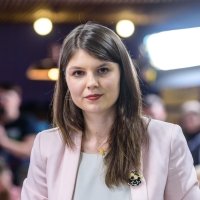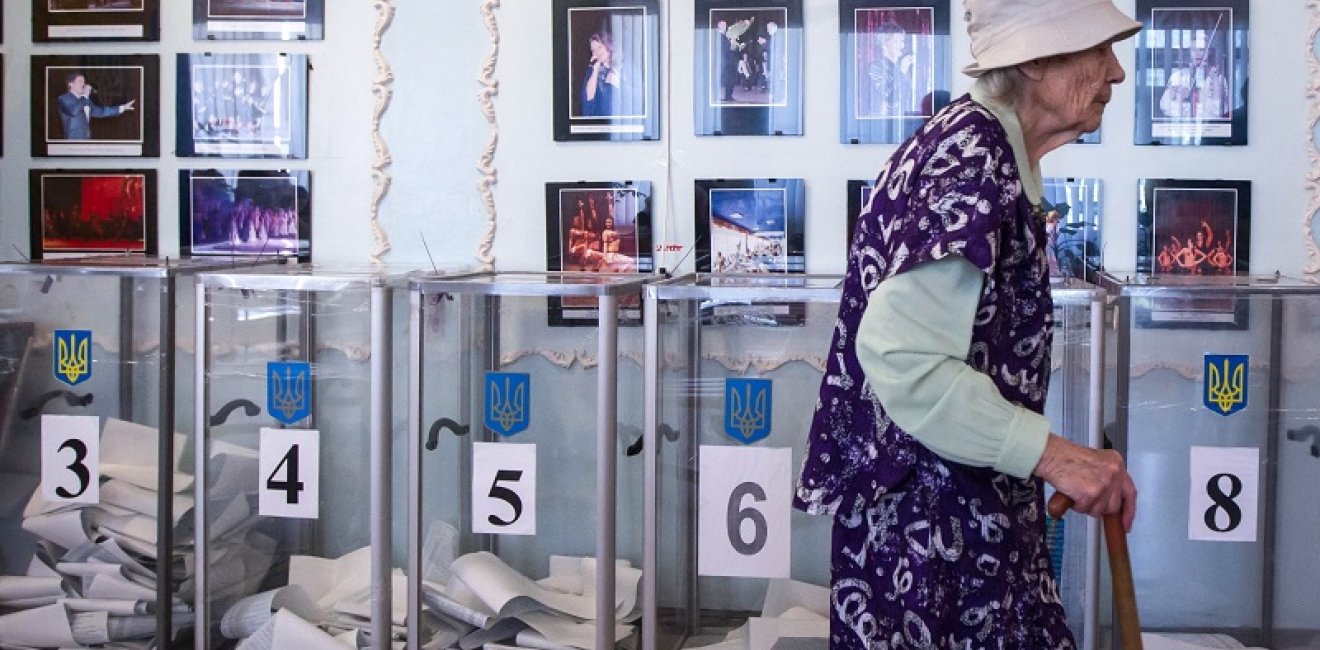
A blog of the Kennan Institute
BY KATERYNA ODARCHENKO
With just a few days remaining until the first round of Ukraine’s presidential elections on March 31, recent polls show Volodymyr Zelenskiy holding on in top place, with the support of almost 25 percent of likely voters. Yulia Tymoshenko, supported by 19 percent of likely voters, is in second place, followed closely by the incumbent president, Petro Poroshenko, with 17 percent.
Zelenskiy’s support base is strongest in the southeastern regions and in the cities of Ukraine’s Center. Tymoshenko and Poroshenko compete for votes in the Center and the West. In Ukraine overall, Zelenskiy leads in urban areas and Tymoshenko in rural areas. Zelenskiy enjoys the sympathy of younger and middle-aged citizens, while older voters lean toward supporting Tymoshenko. The table shows the age and gender breakdown of supporters of the three leading candidates.
18–29
30–39
40–49
50–59
60+
Men
Women
Volodymyr Zelenskiy
39%
26%
17%
11%
7%
20%
18%
Yulia Tymoshenko
7
12
13
16
21
11
17
Petro Poroshenko
10
12
17
11
14
14
12
Figure 1: Electoral mood by age and gender, %
Interestingly, the same poll found that most respondents do not believe Zelenskiy will win, despite his standing in the polls, and that President Poroshenko will prevail, even that he tops the anti-rating scale, having garnered the greatest number of people who under no circumstances would vote for him.
The vast majority of Poroshenko’s supporters are middle-aged people—those who settle in to watch TV after a hard day’s work. Such people are convinced that the threat of an invasion by Russia still exists and that the president has strengthened the country’s domestic defense capabilities; they consider themselves patriots. Also among the groups supporting Poroshenko are segments of the military that participated in hostilities in eastern Ukraine. However, their share has recently declined with the revelation that defense industry officials close to Poroshenko may have been involved in corruption schemes. A third major group of supporters comprises observant Eastern Orthodox Church members, who are delighted by Constantinople’s recent granting of autocephaly and the separation of the Kyivan church from the Moscow patriarchate. Poroshenko's active participation in obtaining autocephaly contributed to strengthening his support among this target group, which consists of worshippers in Ukraine’s West and Center.
Missing from this mix of groups supporting Poroshenko on patriotic and religious grounds are voters looking for economic improvements. Unanswered economic questions hovering over Poroshenko’s presidency have rendered a sizable part of the electorate uninterested in his continuing at the helm.
Yulia Tymoshenko’s supporters can be characterized for the most part as people who are dissatisfied with available opportunities to develop their own business or with their own economic situation and social security. They are least interested in matters of faith or patriotism. They also fall predominantly in the age groups most active in elections, 50 years and older. At the other end of the age spectrum, Tymoshenko is gaining popularity among young people working in IT-related industries. Tymoshenko’s platform, under the name "New Economic Course," emphasizes the rebuilding of Ukraine’s economy as a technology-focused one, a position she has forwarded through regular conferences and forums devoted to the topic. Finally, people who voted for Poroshenko during the last presidential elections and were disappointed with how things turned out are also likely to vote for Tymoshenko.
Working against Tymoshenko is the historical and habitual disinclination of young people to vote. In Ukraine, only one-third of young people aged 18–24 years voted in 2014, while more than 65 percent of Ukrainians aged 50–59 voted. It remains to be seen whether Tymoshenko can inspire a get-out-the-vote movement among younger people when it counts.
Young people form the largest potential group of voters for Volodymyr Zelenskiy—which also places his election at risk through nonvoting. His supporters include people who know Zelenskiy from his playing a presidential candidate in a popular TV series but who are not usually interested in politics. They are not concerned with pensions, wages, or tariffs and will vote for him because they are not ready to vote for Tymoshenko and are disappointed in Poroshenko. The main reason for voters to be troubled by Zelenskiy’s candidacy is his extreme lack of experience and the absence of a formal team ready to help him assume the presidency and guide the country in a difficult time. Another disturbing factor is Zelenskiy’s business association with the scandal-tainted Igor Kolomoisky.
Sunday’s elections will disclose which of these groups of Ukrainians have made sure their voices are heard.
Author


Kennan Institute
The Kennan Institute is the premier US center for advanced research on Eurasia and the oldest and largest regional program at the Woodrow Wilson International Center for Scholars. The Kennan Institute is committed to improving American understanding of Russia, Ukraine, Central Asia, the South Caucasus, and the surrounding region through research and exchange. Read more

Explore More in Focus Ukraine
Browse Focus Ukraine
Talking to the Dead to Heal the Living

Ukrainian Issue in Polish Elections


